At the beginning of November, I visited Uruguay in the capacity of Open Knowledge Foundation’s Partnerships Lead to take part in #MaratónDeDatos, a pool of various events focused on the work with data, open data and open knowledge, and a meeting point for the global community engaged with the topic.
I first arrived in Montevideo for AbreLatam ConDatos on October 31st and later went to Punta del Este for Festival de Datos, from November 6th to 9th. Between both events, OKFN also co-hosted Calaveras y Datitos alongside Data Uruguay and SocialTIC, a celebration for the community to share their past (dead!) data projects in the context of the Mexican tradition for “Día de Muertos” (Day of the Dead) on November 2nd.
AbreLatam ConDatos
The conference took place at both the headquarters of the Executive Power of Uruguay and Fundación La Muralla, a beautiful community centre housing different social inclusion programs. In the context of this event, I participated on a panel to talk about the School of Data, OKFN’s Data Literacy program. Together with Juan Manuel Casanueva (SocialTIC) and Fernanda Campagnucci (Open Knowledge Brazil), we announced a partnership between the global program and the network’s Latin American initiatives: Escuela de Datos from México and Escola de Dados from Brazil.
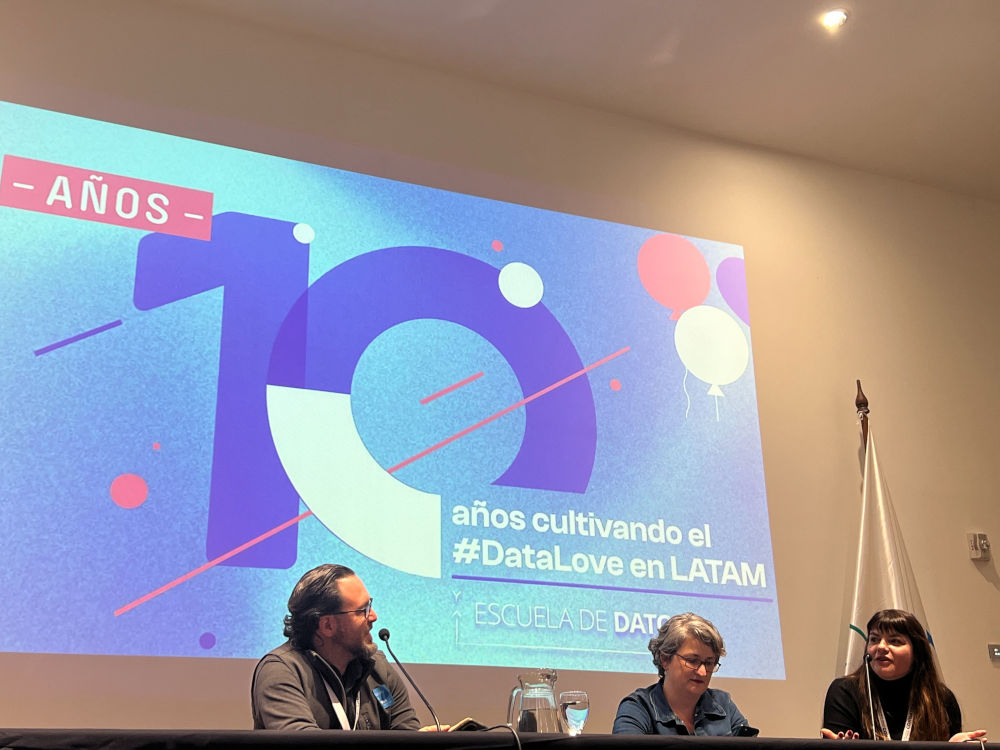
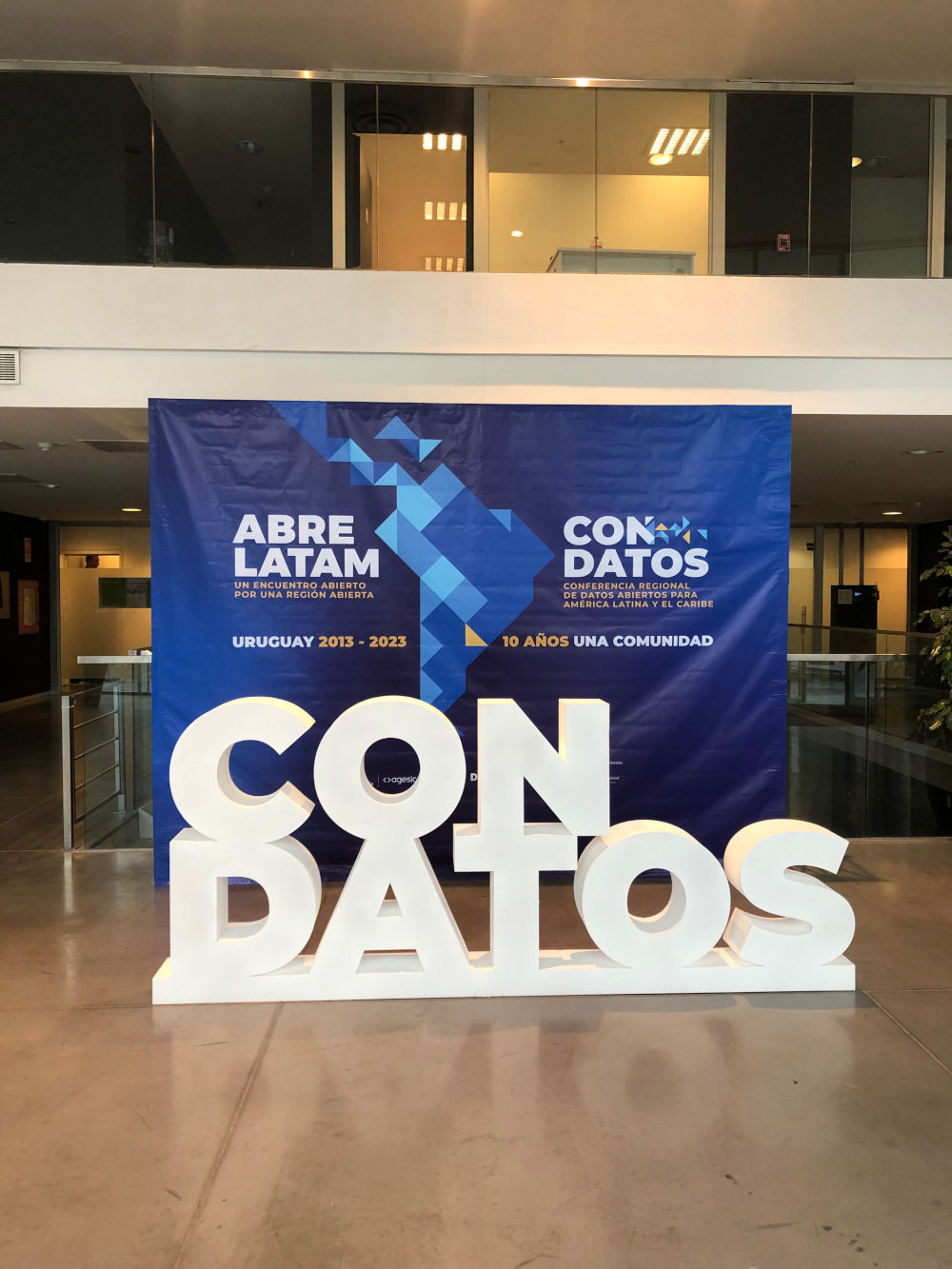
We also hosted a community talk on the second part of the event, where we listened to the community’s concerns and needs in terms of data literacy initiatives facing the latest technology developments such as Artificial Intelligence and Digital Public Infrastructure. We were able to hear the perspectives of partners like Pepe Garcia (Open Government Partnership) and Arturo Muente Kunigami (Inter-American Development Bank), among others.
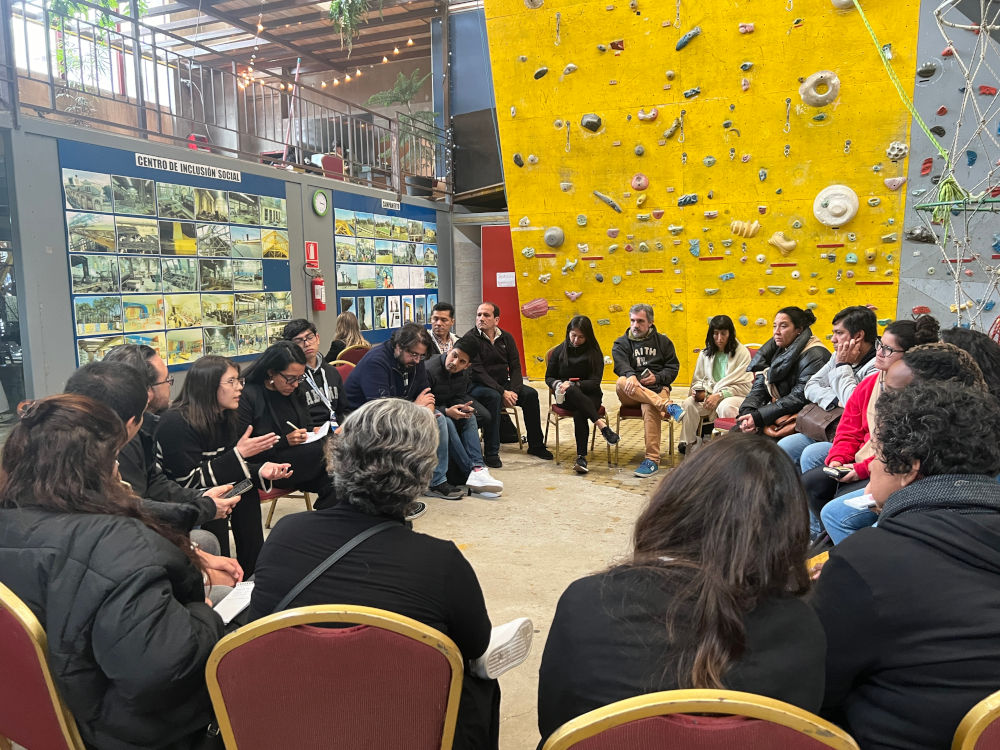
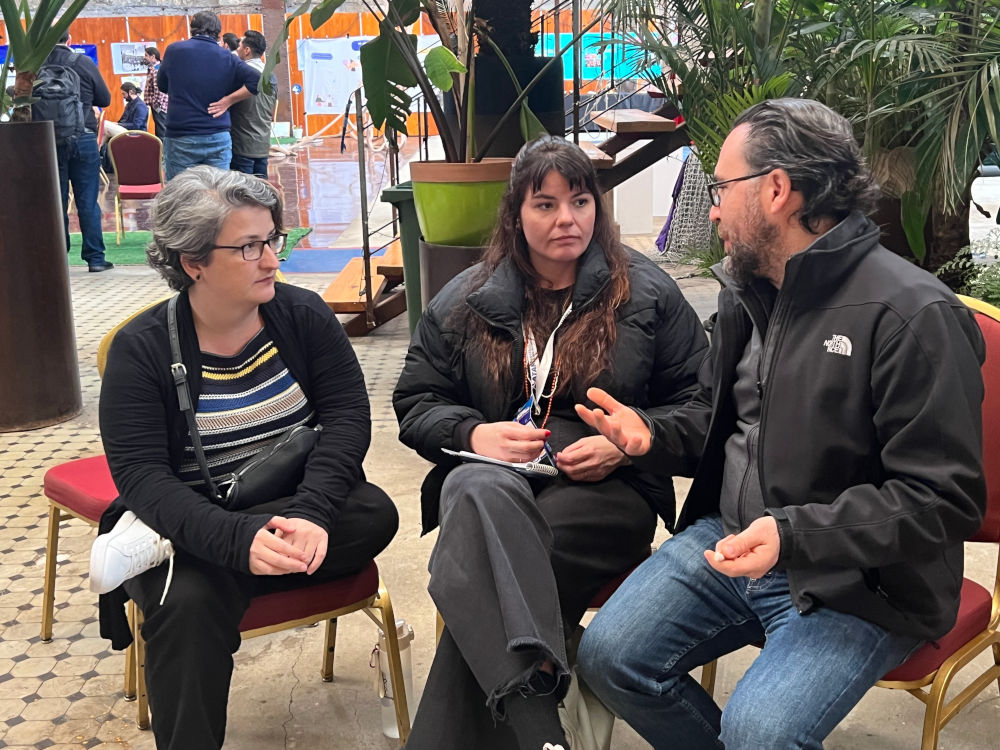
Calaveras y Datitos
Right before the last day of the event, we celebrated our reunion at Cervecería Malafama, where OKFN hosted “Calaveras y Datitos” (or “Skulls and Data”) alongside SocialTIC and Data Uruguay, making a historical homage to data network events usually associated with a local drink like “Datos y Mezcales” and “Cerveja com Dados”.
It was an open mic and drinks evening to remember and share about projects that had already died, but which still live in the memory of the people who helped to make them happen. The venue was packed and we were able to hear stories of incredible projects, as well as engaging in new connections for future developments. The following day, we learned that the next edition of AbreLatam ConDatos in 2024 will be in Brazil, which will have the great challenge of offering the same hospitality as Uruguayans.
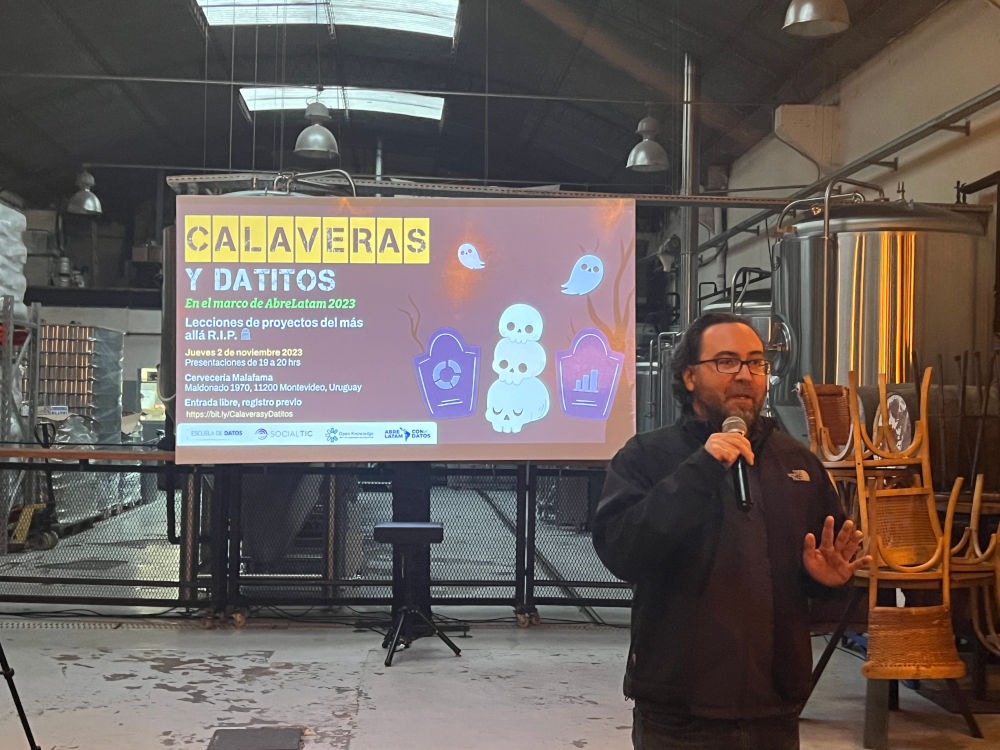
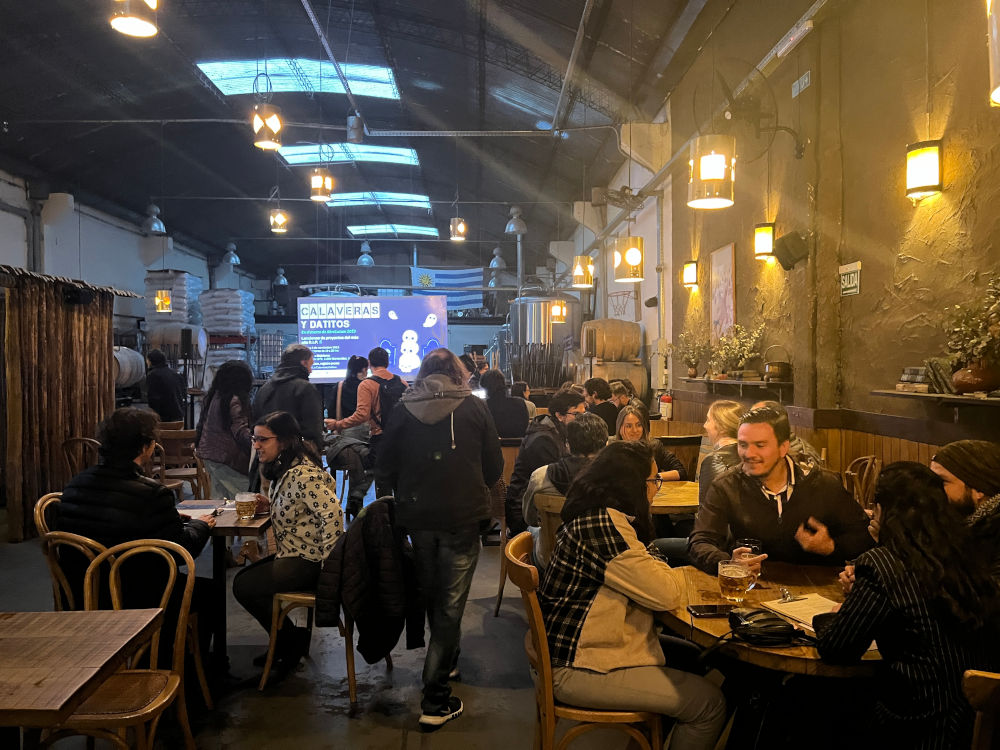
Festival de Datos
Heading to Punta del Este for Festival de Datos, a data festival organised by the Global Partnership for Sustainable Development Data team and for which I served as a member of the steering committee throughout this year, I found an even bigger event, with around 700 people from around the world gathered in this seaside town to discuss the use of data to advance the SDGs in the context of the 2030 agenda. During Day Zero, which took place at Enjoy Casino and Hotel, I participated in a session on citizen data generation organised by the Kenya National Bureau of Statistics and attended by representatives from several countries, such as Data Labe (Brazil), DANE (Colombia) and Video Volunteers (India), highlighting the importance of open and participatory methodologies for generating data that actually represent reality.
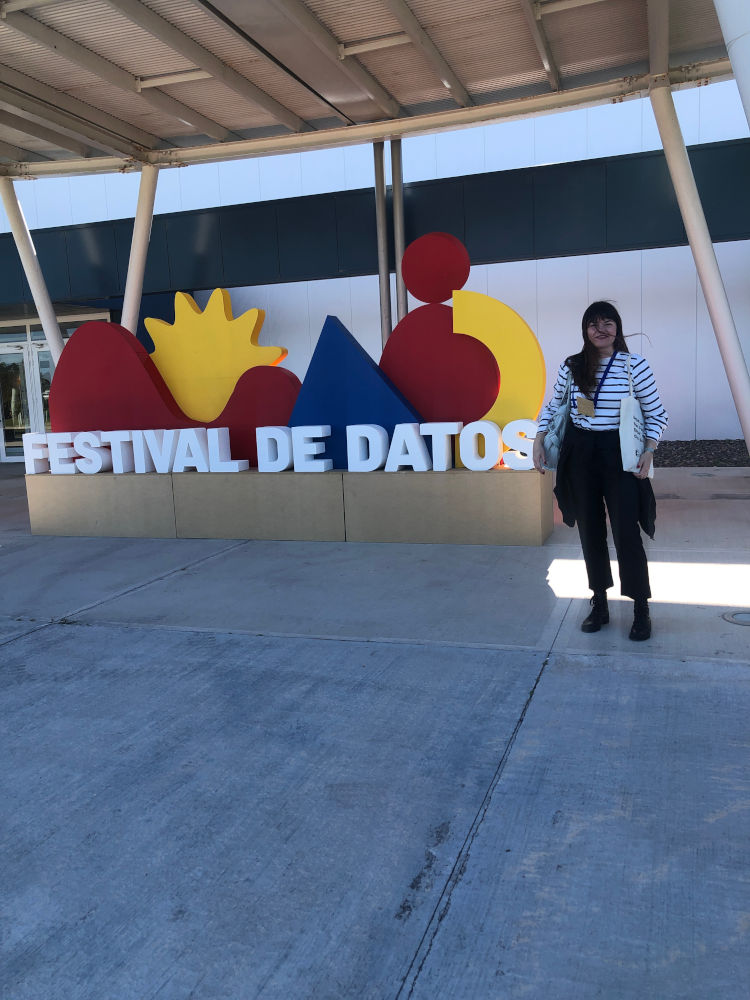
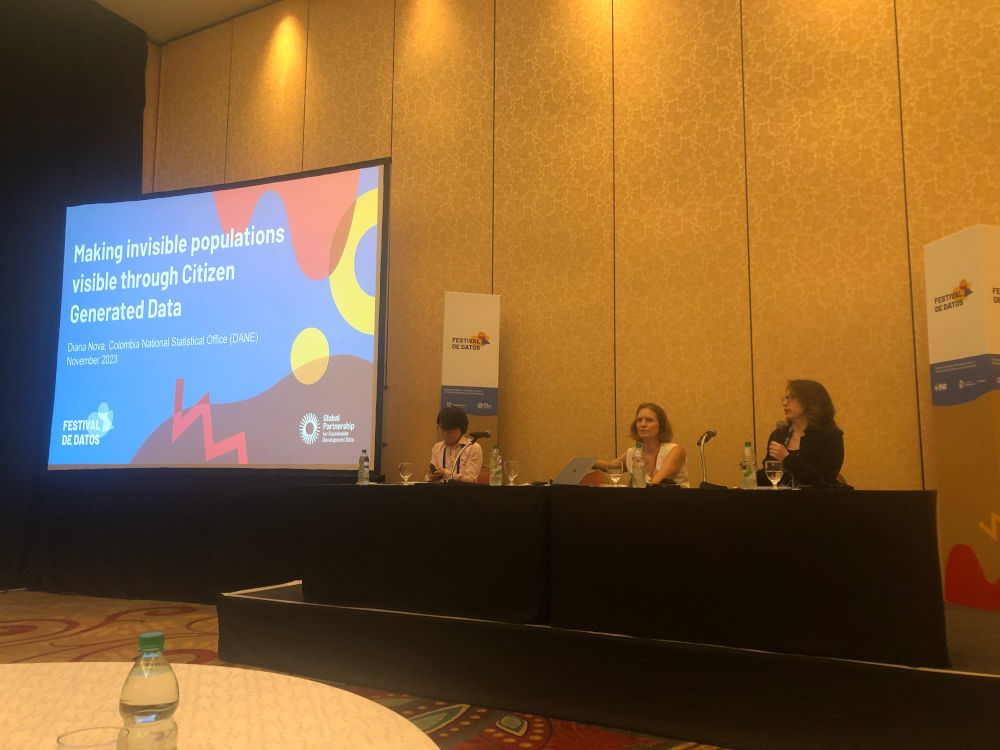
In the following days of the event, I was involved in activities aligned with OKFN mission, such as the one facilitated by Stefaan Verhulst (The Governance Lab) and Eugenia Olliaro (Unicef), to discuss the principles of Responsible Data for Children (RD4C), especially in the context of refugee children, and the launch of the Spanish version of the World Bank SDG Atlas, with Divyanshi Wadhwa. I also had the chance to meet OKFN partners such as Poncelet Ileleji (Open Knowledge Gambia) and Deshni Govender (GIZ / FAIR Forward).
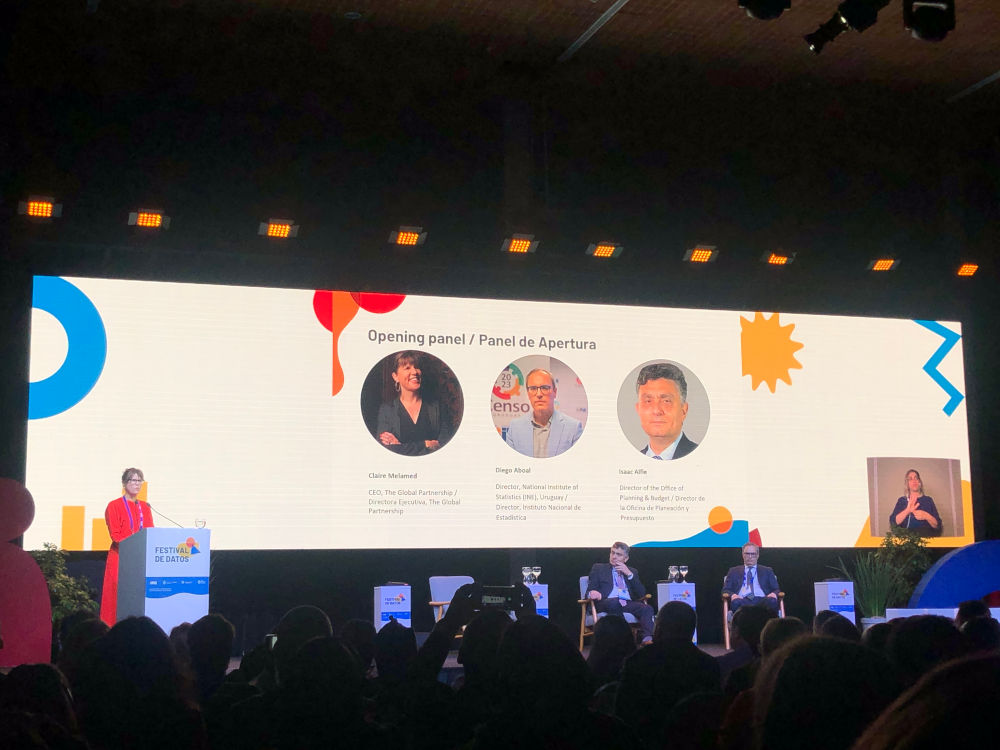
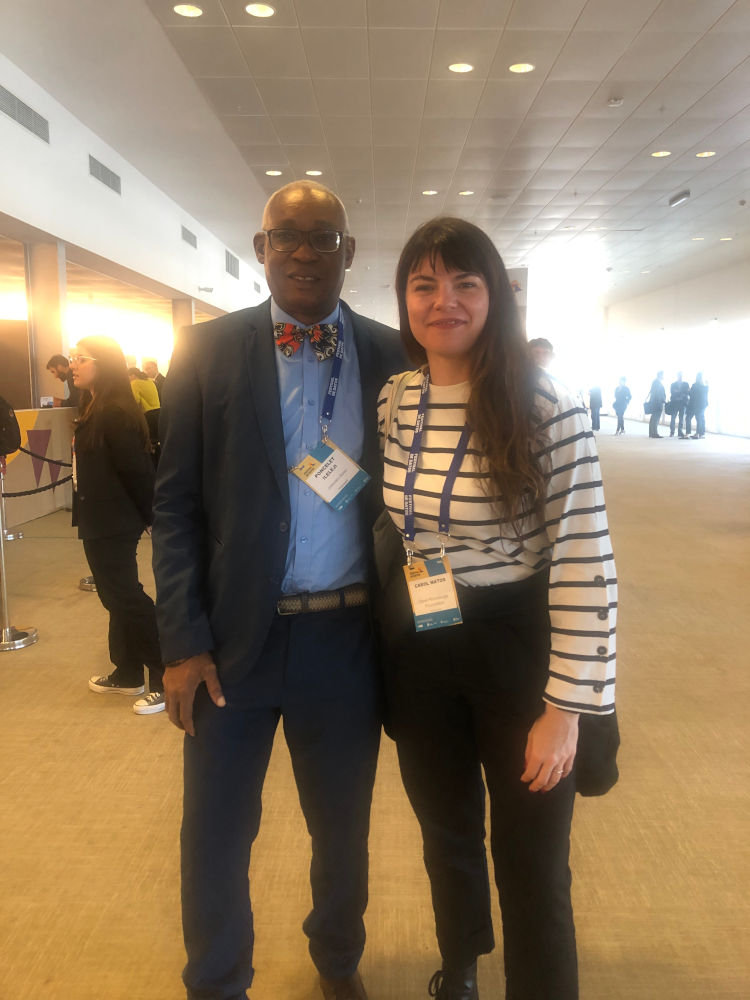
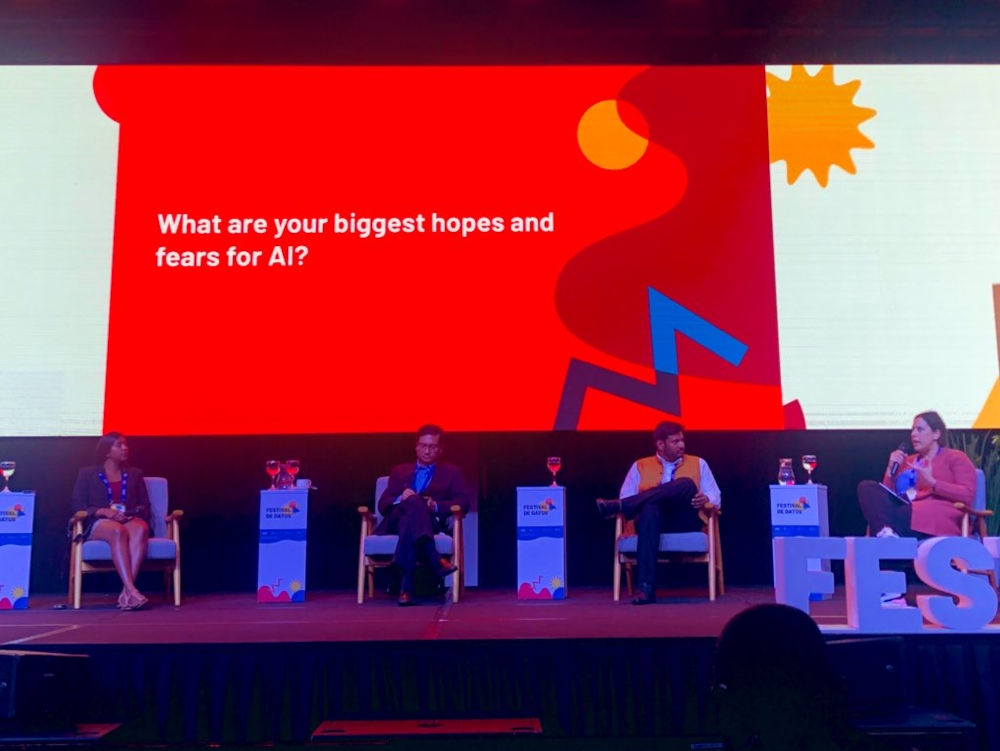
During these busy days, we also gained many supporters for Open Data Day 2024, whose central theme is the Sustainable Development Goals. Supporting this event is the perfect way to celebrate data communities coming together to make a real impact on people’s lives.
If I had to highlight two words that were said many times in all the panels and meetings during my stay in Uruguay, I would definitely say community and partnerships. As a Latin American, it was very gratifying to participate in events based in the region that have a global reach. Already looking forward to the next meetings and projects, thanks to Uruguay for providing such an important human side of working with technology!








